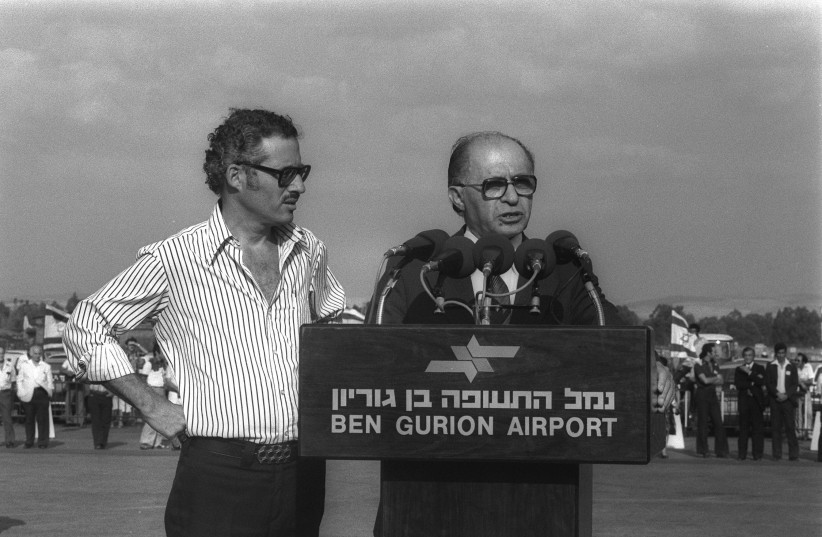“Memory is the treasure house of the mind, wherein the monuments thereof are kept and preserved.” – Thomas Fuller
At my advanced age (93 this month), inevitably I have thousands of memories. Some get discarded, some are cherished. One unforgettable memory is a conversation I had with the late Menachem Begin – a leader in Israel over its first four decades and, to me, a hero.
When we met in 1982, I was the spokeswoman for Shaare Zedek Medical Center, and he was a patient for two weeks with a bout of pneumonia.
Of course, he was a top-priority patient, nearly always with a staff doctor or nurse attending to him, and was rarely alone. Part of my duties was to visit important patients daily to see if there was anything they needed. Always there were other staff in attendance [to Begin] – except the last day of his hospitalization, when for 10 minutes I found myself alone with him. And those 10 minutes are engraved on my memory forever.
A 10 minute meeting with Menachem Begin
I was so surprised – and overwhelmed – to be alone with him, I blurted out an inane question: “Are you pleased to be going home today, sir?”
He shook his head. “Home for me meant Aliza,” he replied.

I felt stupid and insensitive. He had married Aliza (née Arnold) in 1939 in Drohobych, Poland. When Begin won the premiership in 1977, he called her up to the stage and quoted from the Book of Jeremiah: “I remember to you the loving-kindness of your youth; the love of your nuptials; your following Me in the desert, in a land not sown.”
Soon after Begin was elected prime minister, the couple moved to Jerusalem – difficult for Aliza, who suffered from emphysema over the years. It was said that she never expressed in public her political views or ever expressed disagreement with her husband’s policies.
She died on November 13, 1982, during her husband’s visit to the US, which made my question very insensitive. However, surprisingly, he took my hand for a few minutes.
“And when I go home,” he continued, “every day there will be numbers posted outside of those who have died in Lebanon – accusing me of being responsible.” He paused. “It’s not my fault. Arik Sharon betrayed me. My order was that he go in no further than 40 km. If he had obeyed me, the massacre at Sabra and Shatila would not have happened.”
I had no idea how to respond to him. Fortunately, at that point his physician Dr. Efraim Meltzer came in, accompanied by Prof. Jonathan Halevy, the hospital’s director-general, and I was saved from making any more remarks.
But I will never forget my feelings of humility, being alone with the man I had admired for decades. Now he was an elderly broken man, and I wished I could have comforted him in some way. I think he may have regretted how much he’d confided in me in those few minutes, for he squeezed my hand once and let me go.
The ward was suddenly filled with staff wishing him well before his discharge. I knew, even then, that those 10 minutes alone with him would be an indelible memory. ■
The writer is the author of 14 books. dwaysman@gmail.com
